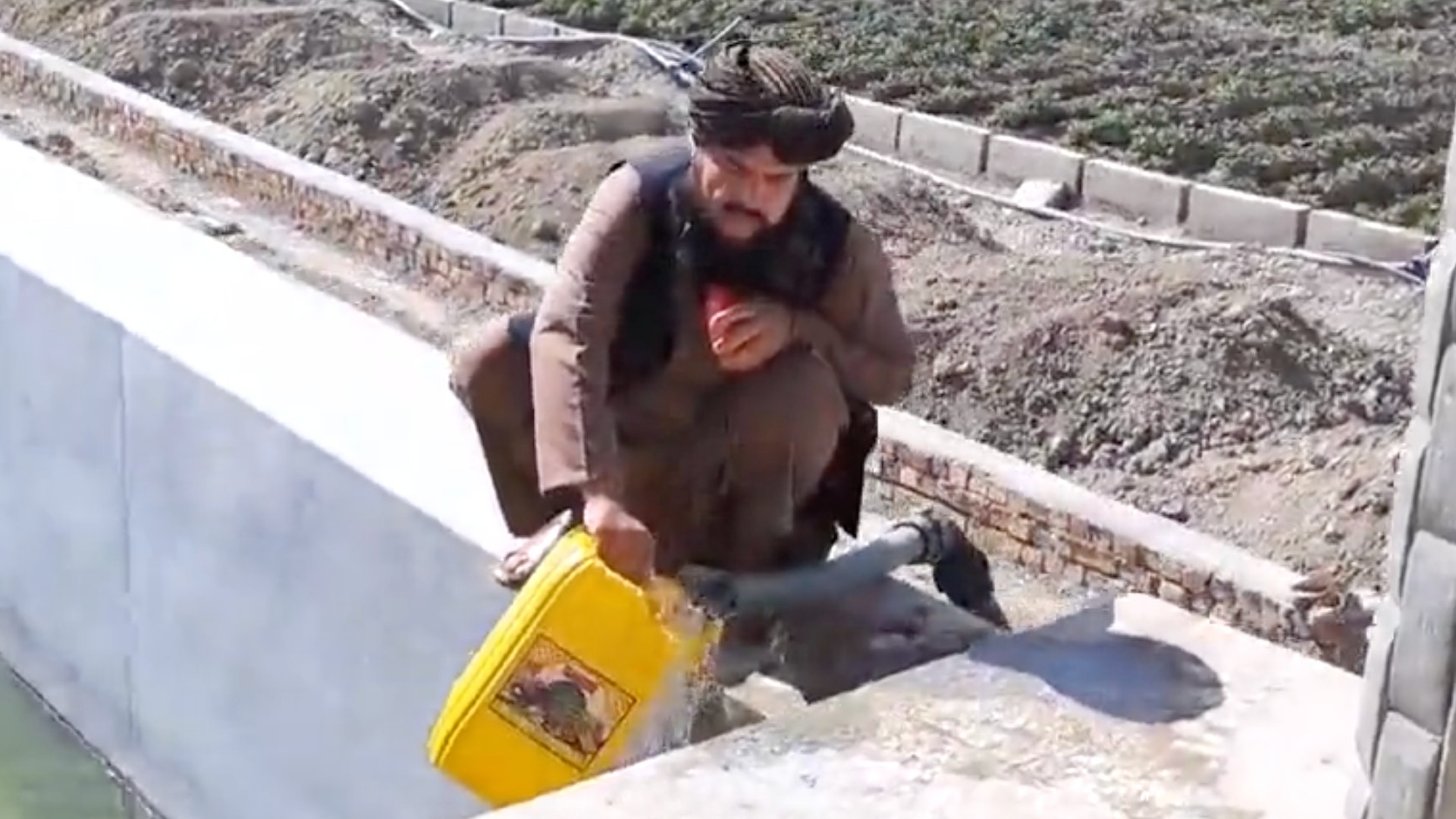Iranian press review: Taliban figure mocks Raisi over water rights demands

Taliban figure rebuffs Raisi’s water threats
A former Taliban police spokesperson mocked the Iranian president, Ebrahim Raisi, after he issued a stern warning to Afghanistan’s rulers over a water dispute between the two countries.
On Friday, a video went viral on social media showing General Mubeen Khan, a well-known Taliban figure, filling up a yellow plastic jug with water. In Farsi and Pashto, Afghanistan's two official languages, he said in the video that he wanted to send the water to Iran's president.
"I'm collecting some water for him [Iran's president] from Logar province because he had sent us serious warnings. Please don't warn us because we will be terrified," Mubeen Khan said mockingly in the video.
Iran and the Taliban have long been in a disagreement over the allocation of water from the Helmand River, which begins in Afghanistan and ends in Hamun Lake in Iran's Sistan and Baluchestan province.
Stay informed with MEE's newsletters
Sign up to get the latest alerts, insights and analysis, starting with Turkey Unpacked
The war of words over the dispute reached new heights in recent weeks.
On 18 May, President Raisi, during a visit to this province, said: "I want to say to the rulers of Afghanistan to take my words very seriously: I'm warning them to give [Iran] its water share as soon as possible… take my words seriously not to complain [about the consequences] later."
Taliban officials urged Iran to make its demands with "appropriate words" after his statement.
Grape juice sales banned
Judicial authorities in Tehran banned shops in the central fruit and vegetable market from selling grape juice, local media reported last week.
On 18 May, the director of Tehran's fruit and vegetable traders' union told the ILNA news agency that the ban was implemented because hygiene procedures by the 65 traders selling the juice were not being followed.
However, it is widely believed the ban was imposed because those who buy grape juice in large quantities often use it to make homemade wine. Producing, trading and consuming alcoholic beverages have been criminalised in Iran since the 1979 revolution.
The timing of the new regulation has also raised questions about the intention behind the ban. The Shahani grape harvest, which in Iran is used for producing wine, will begin in a month.
The ban has also caused lots of mockery on social media.
One Twitter user wrote: "They banned trading grape juice to stop producing wine; don't you think this is a bit stupid? You'd better totally ban cultivating grapes in the country!!!"
Soleimani biography removed
Iran's Ministry of Culture and Islamic Guidance, the governmental body controlling book publication in the country, banned a biography about the assassinated Islamic Revolutionary Guard Corps (IRGC) commander Qassem Suleimani and removed the book from Tehran's international book fair.
According to local media, the book, A Candidate for the Bullets, was banned because it did not obtain all the necessary permissions for publication and distribution.
On Tuesday, the Hamshahri Daily, an outlet with close ties with ultra-conservative factions, reported that the book was published based on a verbal agreement between the culture ministry and the Khate Moghaddam publishers.
Hamshahri wrote that the book waited five months for permission and was finally published based on a verbal agreement.
However, unofficial reports said that the IRGC was the main force behind the ban due to Soleimani's status in the elite force.
Campaign to ban male nurses in labour rooms
The Fars news agency, affiliated with the IRGC, began a campaign demanding a ban on permitting male health staff from working in hospital labour wards.
Under the headline: "No to the presence of men in labour rooms; put an end to this nightmare!" the news agency launched a petition demanding authorities enforce the prohibition.
"All the stress of being in the labour room on one side, and the stress related to the presence of male relatives when giving birth on the other side," wrote Fars.
"Many protest their presence because of religious law… and changing this situation is necessary," the news agency added.
Fars claimed there were sufficient female doctors, technicians and nurses in Iran to ban male health staff from entering labour wards.
*Iranian press review is a digest of news reports not independently verified as accurate by Middle East Eye.
Middle East Eye delivers independent and unrivalled coverage and analysis of the Middle East, North Africa and beyond. To learn more about republishing this content and the associated fees, please fill out this form. More about MEE can be found here.




